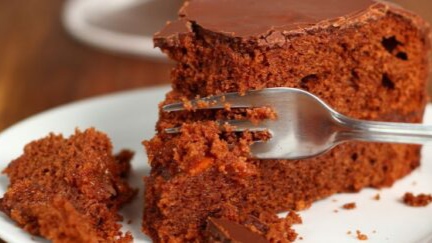After making tea or pressing coffee in the morning, you may want to think again before throwing away the leaves and grounds. Recent research shows that you can get more benefits from leftovers. A new study by researchers at King Faisal University in Saudi Arabia has shown that if you add coffee grounds or use tea leaves to your next baking recipe, it can improve the nutritional value. of baked products and prolong shelf life.
“By incorporating used tea and coffee powder into the sponge cake mixture, the nutritional value of the cake can be improved, thereby providing additional health benefits,” write the researchers behind the study. healthy for consumers”. “The presence of bioactive compounds in the flour also contributes to potential antioxidant activity…and retards microbial growth during storage.” Tea and coffee are the most popular beverages around the world, providing countless people with their daily dose of anti-inflammatories, antioxidants, fiber and even some bioactive compounds that benefit the human body.
consciousness and cardiovascular. Unfortunately, the way most of us prepare these drinks is wasteful. After mining, about 90% of tea and coffee products are sent to landfills. In recent years, scientists have been thinking about possible ways to make better use of this waste. Recently, a study found that adding burnt coffee grounds to cement can make the material 30% more durable. But the construction industry isn’t the only one interested in future recycling efforts. Scientists also suggest using tea and coffee grounds to enrich food.
For example, in 2020, researchers explored the idea of adding used coffee grounds to gluten-free cookies in an effort to increase their nutritional value. And in 2023, another study added green tea to cupcakes to see if the flavonoids in the leaves persisted after baking. Flavonoids are important plant compounds that have anti-cancer, antioxidant, anti-inflammatory and antiviral properties. The latest research builds on previous studies and examines whether used tea or coffee retains its antioxidants after boiling and grinding, and whether this material can be recycled. processed to improve the nutrition or shelf life of the cake.
“Overall, we aim to provide ordinary households with easy-to-use methods to reduce their carbon footprint…” the authors write. When the team steeped black tea and Arabic coffee in boiling distilled water for 10 minutes, they found that the dried grounds retained a significant proportion of phenolic compounds, including flavonoids. For example, tea powder retains up to 73% of a phenol called theaflavin trigallate, a powerful antioxidant recommended for people with high cholesterol, obesity or heart disease. On the other hand, the coffee grounds used retain almost 64% of an antioxidant called 1-caffeoylquinic acid, which also has many health benefits. Even after baking, these antioxidants remain in the final product.
Compared to regular sponge cakes, cakes filled with coffee or tea contain higher levels of phenol as well as calcium, phosphorus, potassium and magnesium. After two weeks of storage, the enriched cake also showed less microbial growth than the control cake, possibly due to the inhibitory effect of certain antioxidants on bacterial growth. New findings suggest that used coffee or tea could be a natural and sustainable way to improve the shelf life of baked goods, while adding nutrients to them.
Next time you make yourself a cup of tea in the morning, perhaps you should set the leftovers aside for later.
